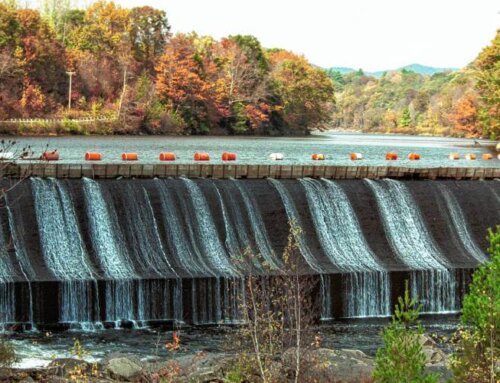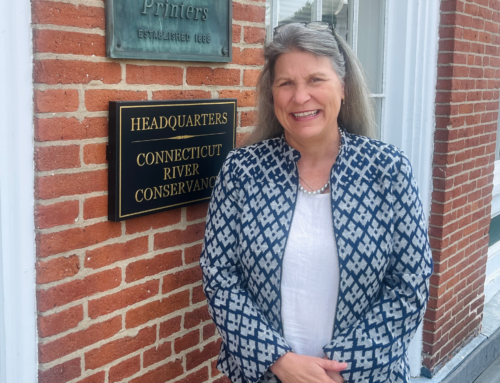GREENFIELD, MA. AUGUST 20, 2009. On Wednesday August 19, 2009, Chief Presiding Officer Salvatore M. Giorlandino of the Massachusetts Department of Environmental Protection’s Office of Appeals and Dispute Resolution issued his recommended final decision that a water withdrawal permit DEP issued to Russell Biomass Inc., in July of 2008 be upheld.
The Connecticut River Watershed Council (CRC), Trout Unlimited, Concerned Citizens of Russell and local residents had appealed the permit out of concern that the allowed withdrawals, especially during droughts, would severely impact a river that already experiences low flows and has impaired water quality from nutrients and suspended solids. The appeal partly hinged on whether the DEP conducted a proper safe yield analysis for the basin, which enables resource managers to project how much water can be allocated for use without impacting the quality and biological integrity of the Commonwealth’s waters.
CRC says DEP granted the permit without measuring actual flows at the site, or assessing the effects of water withdrawals on the entire basin. The Westfield River is a biologically rich tributary of the Connecticut that holds federal “wild and scenic river” status. Another concern is that the permit allows plant operators to withdraw water until the Westfield River reaches the lowest flow ever recorded, and the 50-MW plant can withdraw even more during an emergency override, without any public input.
“We were simply asking them to follow their own regulations and to use current science,” says CRC’s Massachusetts River Steward Andrea Donlon, “This decision, if finalized, unfortunately lowers the bar for water resource protection.” According to Donlon, five new power plant proposals totaling 815 megawatts have cropped up in the Connecticut River Valley in the past year, all requiring water for cooling. Attorneys Meg Sheehan of Williamstown and Anne Bingham of Sharon represented the groups in the appeal. Sheehan contends that Giorlandino’s decision is rife with legal defects, both procedural and substantive. “The decision is completely arbitrary and capricious. The presiding officer threw out testimony of six of seven of our witnesses on the issue of whether the company’s actions will make pollution in the Westfield River worse. Yet, he allowed and used the testimony of the company and the state on this very same issue. This alone is a serious procedural defect.”
Leading up to the DEP adjudicatory hearing in January, Giorlandino granted Russell Biomass and DEP extra time for filings, while denying the conservation groups the same, accusing them of foot-dragging. CRC River Steward Andrea Donlon said that the end result was that several arguments and exhibits were thrown out because of small errors, and “It seems ironic to get this decision now, after the promised decision was originally due in early May and then postponed at least three times by DEP’s Presiding Officer.” Next, DEP’s Commissioner Laurie Burt will make a final decision on the appeal. Parties then have 30 days to decide whether to appeal the decision to Superior Court.







